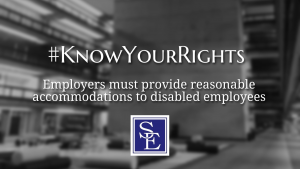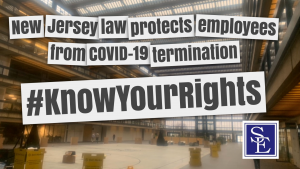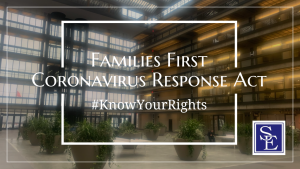As schools scramble to figure out how best to reopen in a couple of weeks, with many opting for a fully remote start to the school year, teachers in some districts are faced with an all too familiar problem for working parents. How will they manage teaching in person and caring for their own kids at the same time? In towns that had planned to reopen with in person instruction, an increasing number of teachers whose children will be at home learning remotely are availing themselves of the 12-week leave available to them under the Families First Coronavirus Response Act (FFCRA). This leave will allow them to care for their own children while many school buildings and childcare centers remain closed.
 The FFCRA is a temporary expansion to the Family and Medical Leave Act (FMLA) that requires certain employers to provide their employees with paid sick leave or expanded family and medical leave for specified reasons related to COVID-19. These provisions will apply through December 31, 2020 to covered employers (those with between 50 and 500 employees) and any employee who has been employed for at least 30 days. Employees can request leave at any time, for several reasons, including because the employee must quarantine, a dependent of the employee must quarantine, or for childcare when the child’s school or usual childcare provider is closed or unavailable for reasons related to COVID-19. When the leave is requested for childcare, employees are entitled to up to 12 weeks of partially paid leave that is subtracted from what would otherwise be their FMLA time. Employers of healthcare workers and first responders can opt out of providing this leave, and employers with fewer than 50 employees can opt out of granting leave requests specifically for childcare issues if granting the request would jeopardize the viability of the business.
The FFCRA is a temporary expansion to the Family and Medical Leave Act (FMLA) that requires certain employers to provide their employees with paid sick leave or expanded family and medical leave for specified reasons related to COVID-19. These provisions will apply through December 31, 2020 to covered employers (those with between 50 and 500 employees) and any employee who has been employed for at least 30 days. Employees can request leave at any time, for several reasons, including because the employee must quarantine, a dependent of the employee must quarantine, or for childcare when the child’s school or usual childcare provider is closed or unavailable for reasons related to COVID-19. When the leave is requested for childcare, employees are entitled to up to 12 weeks of partially paid leave that is subtracted from what would otherwise be their FMLA time. Employers of healthcare workers and first responders can opt out of providing this leave, and employers with fewer than 50 employees can opt out of granting leave requests specifically for childcare issues if granting the request would jeopardize the viability of the business.
Teachers who suffer from disabilities may also be entitled to accommodations, including leave of absence, if they can show the requested accommodation is reasonable and supported by medical evidence. The Law Against Discrimination prohibits employers from discriminating against disabled employees in connection the terms and conditions of their employment. The Law Against Discrimination also requires employers to engage in an interactive process with disabled employees who are in need for assistance, and provide them with reasonable accommodations, unless they can show it would be undue hardship on the school’s operations to provide the accommodation.
 New Jersey Employment Lawyers Blog
New Jersey Employment Lawyers Blog



